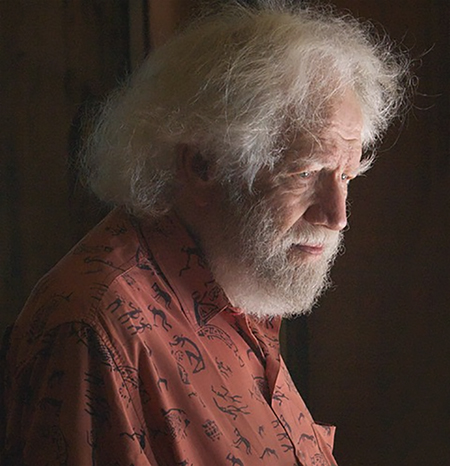Mission Statement
Introduction
For nearly 50 years, chemist and psychopharmacologist Dr. Alexander T. (“Sasha”) Shulgin was the world’s most prolific discoverer of the psychoactive compounds known as psychedelics. Working mostly alone, but at times with close colleagues, Dr. Shulgin probed the nature of the psychedelic effect by directed synthesis and personal evaluation of these remarkable consciousness-altering substances. His work influenced the growth of neuropsychopharmacology, in which his creations are copiously cited. Dr. Shulgin is credited with creating over 150 new psychedelic compounds, and with identifying the unique psychological properties of MDMA (3,4-methylenedioxy-N-methyl-amphetamine), well-known as the prototype for a class of drugs named “empathogens” (sometimes called “entactogens”) for their abilities to generate feelings of empathy, compassion, and enhanced communication with other individuals. MDMA is now recognized as an effective treatment for post-traumatic stress disorder because of its ability to reduce feelings of fear and anxiety associated with past trauma.
Dr. Shulgin published over 170 scientific papers, book chapters, and many more popular articles on psychedelic drugs. He and his wife Ann describe their life stories and shared research in the landmark books PiHKAL (Phenethylamines I Have Known and Loved: A Chemical Love Story; Transform Press, 1991), and TiHKAL (Tryptamines I Have Known and Loved: The Continuation; Transform Press, 1997). His original laboratory resides on the family’s “Farm” in Lafayette, CA.
Dr. Shulgin informally founded the Alexander Shulgin Research Institute (ASRI) in the 1980s to lend identity and focus to his work. After his death in 2014, Drs. Paul F. Daley and Nicholas V. Cozzi, two long-time research colleagues of Dr. Shulgin, assumed research and thematic leadership roles at ASRI. Under their direction, ASRI has synthesized and supplied a variety of psychoactive substances for basic chemical and pharmacological studies to universities and research organizations around the world. More recently, FDA-approved clinical research with psychedelic substances in the United States at the University of Alabama, New York University, the University of New Mexico, the University of Wisconsin, Yale University, and elsewhere, have been conducted with psychedelics (psilocybin, dimethyltryptamine) supplied by ASRI scientists. In turn, ASRI has been credited in over 20 associated scientific publications. ASRI was formally incorporated by Ann Shulgin, Dr. Paul Daley, and Dr. Nicholas Cozzi on Bicycle Day, April 19, 2021.
Mission
Our mission is to continue developing ASRI as a premier scientific research and educational organization to carry on and extend Dr. Shulgin’s work. Society is presently undergoing a rapid evolution in its attitudes toward the use of psychedelic compounds. This is reflected in a steady increase in clinical research with psychedelics and a relaxation of the strict governmental limitations regarding their use in humans. In this environment, ASRI sees itself as continuing on the path of becoming a world center for basic scientific research into the chemistry and pharmacology of psychedelic drugs. This goal will be achieved through research projects involving de novo chemical synthesis, natural product isolation, and basic pharmacological testing of newly discovered substances as well as existing compounds from the Shulgin Vault of approximately 500 samples. We anticipate that many of these compounds will be evaluated in humans for possible therapeutic benefits and will be useful as tools to deepen our understanding of consciousness itself. The emphasis will be to explore both natural products and novel analogues of known psychedelics in the phenylalkylamine, tryptamine, and lysergamide chemical classes for potential psychoactivity and therapeutic utility. We will also provide services such as customer-requested chemical syntheses and analyses; consulting and advisory services for academic, commercial, government, and legal clients; and public education activities including seminars, publications, podcasts, conference presentations, and participation in teaching and training programs at academic and clinical institutions.
Goals
The mission of ASRI will be realized through the following goals:
- Establish a modern Shulgin Research Laboratory to conduct research and development activities as detailed below.
- Design, synthesize, and characterize novel compounds to identify substances with potential psychedelic activity.
- Catalog existing and unpublished compounds from the Shulgin Vault.
- Isolate and identify naturally-occurring compounds from plants and other natural sources to discover compounds of interest.
- Generate in vitro pharmacological profiles for Shulgin Vault compounds, as well as newly synthesized or isolated natural product compounds, to identify drug binding sites and to assess functional activity at various receptors, ion channels, and transporters. Structure-activity relationships will be studied to guide the development of new drugs and to develop pharmacophore-based models for drug binding sites.
- Evaluate existing and newly synthesized compounds in vivo for behavioral and psychoactive effects to discover compounds with potential clinical value and to contribute to a greater understanding of the relationship between brain chemistry and consciousness.
- Supply compounds to qualified scientists for basic preclinical studies and to clinical researchers for Phase 1 and Phase 2 medical research.
- Facilitate the exchange of knowledge through relationships and collaborations with academic centers, medical communities, pharmaceutical companies, and government agencies through publications, conference presentations, personal visits, podcasts, and other expositions. ASRI discoveries and research results will be published in peer-reviewed scientific journals and presented at scientific conferences.
- Obtain patents for new compounds and new uses for existing compounds to protect intellectual property which will provide financial support for ASRI.
- Secure a revenue stream to support ASRI research. Sources will include capital investments, donations and grants, foundation support, revenue from joint commercial ventures with investor partners, and fees for service. Examples include federal SBIR/STTR grants; fee-for-service research, custom syntheses and analytical services; supplying compounds to business partners and joint ventures for commercial development; consulting, advisory, and training services; and expert witness services for legal clients.
- Maintain a working atmosphere characterized by mutual respect, dignity, kindness, and curiosity.
Acknowledgment
ASRI owes a debt of gratitude to Ann Shulgin, Wendy Tucker, and the extended Shulgin family. Special thanks go out to the many scientists, clinicians, patients, and interested persons around the world who have benefited from Sasha Shulgin’s creations and who in turn have helped support the Shulgin legacy over the years with financial, emotional, and inspirational support.
